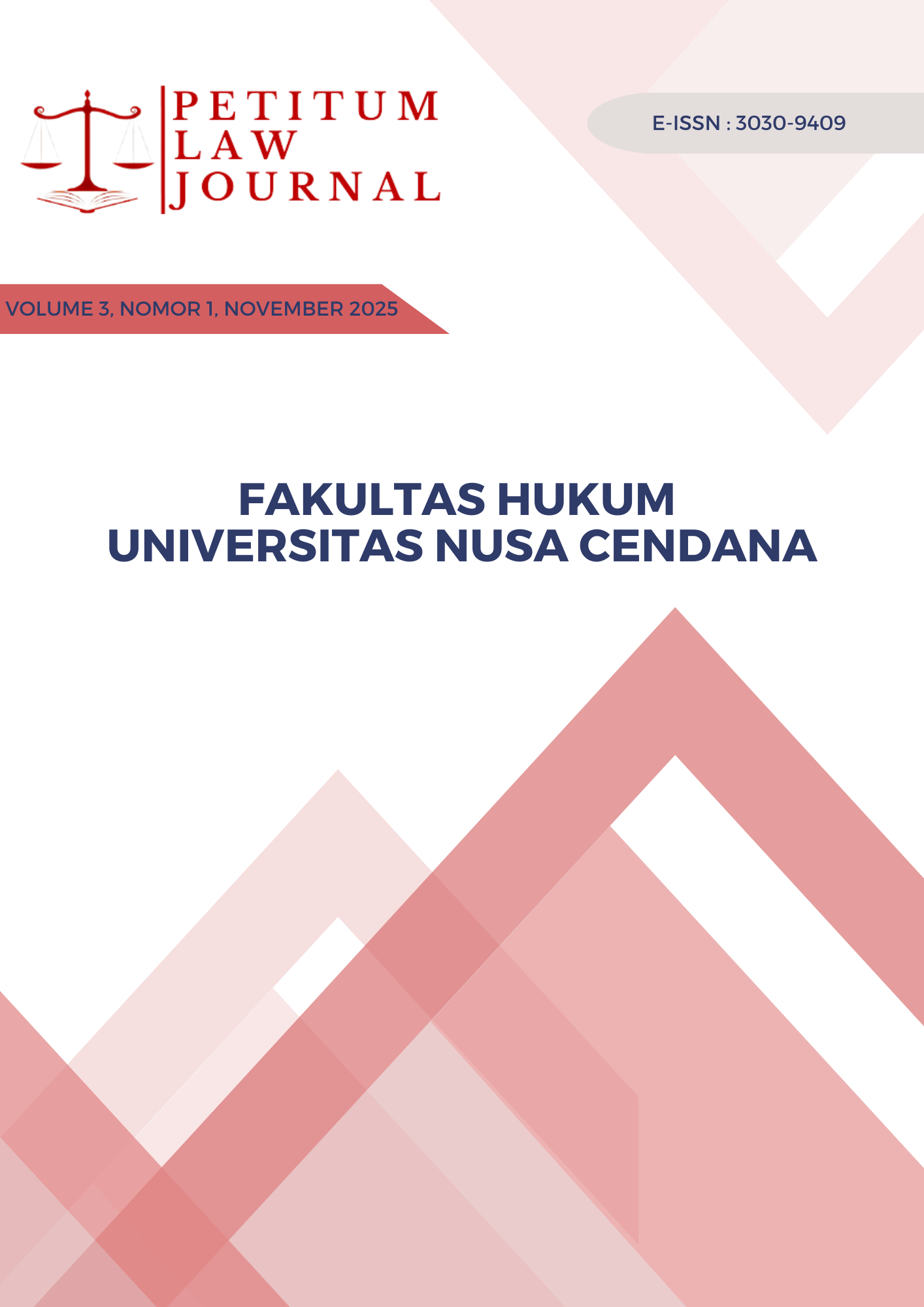EKSISTENSI DAN FUNGSI LEMBAGA ADAT DALAM PENYELESAIAN SENGKETA ADAT DI DESA KAMBATA WUNDUT KECAMATAN LEWA, KABUPATEN SUMBA TIMUR DITINJAU DARI UNDANG-UNDANG NOMOR 6 TAHUN 2014 TENTANG DESA
Main Article Content
Abstract
This study explores the function of customary institutions in resolving customary conflicts in Kambata Wundut Village, East Sumba, using empirical methods including interviews, observations, and literature reviews. The findings of this study reveal that customary institutions such as Rato and Kabihu act as mediators in disputes over land, theft, and forest protection through deliberations based on local wisdom. Ceremonies such as Hamayang Kacua Utang and the Wai Humba Festival demonstrate the integration of Marapu spiritual values with ecological protection and cultural identity. Although functioning well as an alternative dispute resolution, customary institutions face challenges due to modernization, lack of regeneration of customary leaders, and inconsistency with national regulations (Law No. 6/2014). Limited community access to customary areas due to administrative expansion and low formal legal counseling make this system increasingly vulnerable. This study recommends strengthening the capacity of customary institutions, aligning government policies with local values, and revitalizing customs through intergenerational education. The sustainability of customary institutions not only protects cultural heritage but also supports socio-ecological justice amidst the changes that occur.

